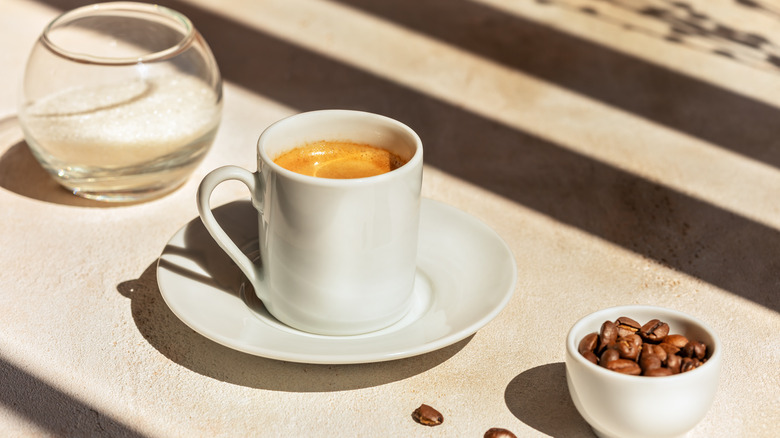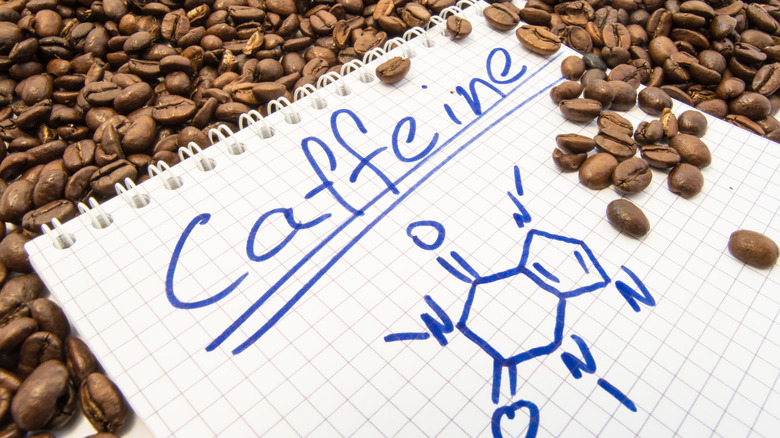Does Decaf Coffee Contain Any Caffeine?
When consumers in the US purchase a food or beverage, we expect that we'll know what's in it. We have faith in the FDA, which, under the Federal Food, Drug and Cosmetic Act, works to ensure truth in labeling, meaning "that labels on packaged food products in interstate commerce not be false or misleading in any way."
According to Nutrition Reviews, the FDA has regulated the addition of caffeine to food since 1958, and currently, producers are required to indicate on a label whether caffeine has been added to a food or drink, despite the fact that moderate consumption of 400 milligrams or less per day is considered safe for most adults (per FDA).
What's interesting — and not a little surprising — is that while manufacturers must include the presence of caffeine in a food, they're not, according to the Center for Responsible Nutrition, required to disclose how much caffeine is present. And products that naturally contain caffeine, like coffee and tea, aren't required to include caffeine in their list of ingredients unless additional caffeine is added.
Given that some people, according to Self, are highly sensitive to caffeine, they might feel comfortable assuming that decaffeinated coffee is entirely free of caffeine, since we know food labels aren't supposed to be misleading. Is that a safe assumption?
Decaffeinated coffee does contain a small amount of caffeine
In order for coffee to be labeled as decaffeinated, the FDA requires that 97% of the caffeine must be removed, according to Consumer Reports. Decaffeinating coffee is an arduous process, and that means, according to the National Coffee Association, that most decaf coffee still contains trace amounts of caffeine, roughly around two milligrams, far less than the average 95 milligrams in a caffeinated cup.
Self points out that the caffeine content in decaf coffee can vary by a pretty large margin, though, and they cite a 2006 study from the Journal of Analytical Toxicology that tested the caffeine content of decaf coffees. The study found that caffeine content varied from three milligrams to as much as 15.8 milligrams in a shot of decaf Starbucks espresso.
Not only does most decaffeinated coffee contain small amounts of caffeine, but there's not actually a regulatory maximum level of caffeine for a coffee that's labeled as decaf, nor is there anyone testing decaffeinated coffee to ensure that the coffee is, in fact, decaffeinated.
For most people, according to Self's conversation with Dr. Ajay Sampat of UC Davis Health, the caffeine content in decaf coffee isn't enough to be noticeable. But Dr. Sampat does caution, "For the minority of people who are really caffeine sensitive, even that small amount can be a lot." If your goal is to stay away from caffeine, even decaf coffee may be off the table.

